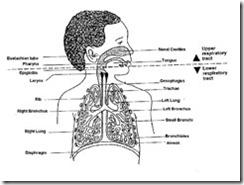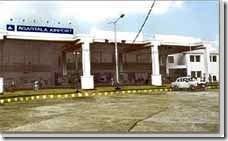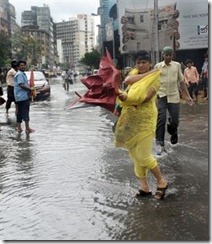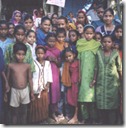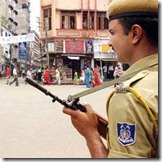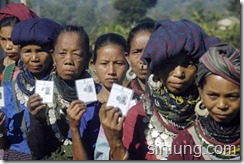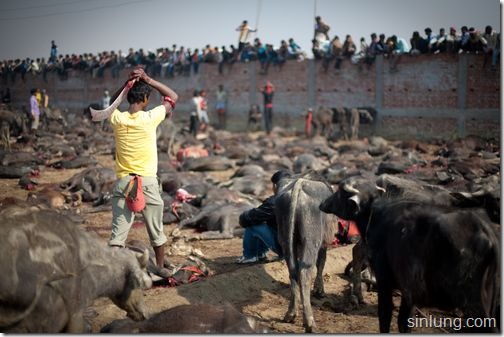 Agartala, Jul 19 : A centuries-old tradition comes alive in Tripura as the idols of 14 Hindu deities, kept locked in a room throughout the year, are brought out for worshipping during the tribal Kharchi festival from Monday - a spectacle witnessed by hundreds of thousands of devotees from India as well as Bangladesh.
Agartala, Jul 19 : A centuries-old tradition comes alive in Tripura as the idols of 14 Hindu deities, kept locked in a room throughout the year, are brought out for worshipping during the tribal Kharchi festival from Monday - a spectacle witnessed by hundreds of thousands of devotees from India as well as Bangladesh.Year after year, it sees the Communist government holding good its promise to the state's erstwhile royal family by continuing to bear the entire cost of the 'puja' and the week-long festival.
'The ceremonial worship starts with a holy dip of the 14 deities in the Howrah river, followed by the sacrifice of 108 goats in the presence of hundreds of thousands of devotees - all at government expense,' former minister and puja committee chairman Pabitra Kar told IANS.
Tripura Police even accord a guard of honour to the head priest of the Kharchi temple in Puran Habeli, Tripura's erstwhile capital in Old Agartala, 12 km from here.
'Kharchi' in the tribal Kokborok language means auspicious.
Colourful makeshift marquees, illumination, religious rites and chanting of 'mantras' amid the beating of drums turn Puran Habeli, the erstwhile capital of Tripura around 12 km east of Agartala, into a spiritual dreamland.
The deities are kept locked in a room throughout the year but only during the seven days of Kharchi - one of the hallmarks of one million tribals in the northeastern state - are they brought out for devotees to have a glimpse.
'Over one million people gather from all over the country and neighbouring Bangladesh to view the Kharchi festival,' Kar said.
This year's key foreign dignitary witnessing the 'Kharchi puja' and festival is US Consul General (Kolkata) Beth Payne.
According to 'Rajmala', the official chronicle of Tripura's royal dynasty, 'Once the mother of King Trilochan, a king of Tripura, went to take a bath in the river Maharani and noticed a wild buffalo chasing the 14 gods.
Later, the gods took the queen's help to kill the beast.
'Cheerful over the act, the gods came to the palace and the royal family offered puja by sacrificing wild buffaloes for the welfare of the state,' Rajmala said.
Gold idols of the 14 deities were stolen several hundred years ago and then the erstwhile kings made the idols again with 'ashtadhatu', an alloy of eight metals.
At the end of the 517-year rule by 184 kings, Oct 15, 1949, the erstwhile princely state came under the control of the government of India according to a merger agreement signed with Kanchan Prabha Devi, then regent maharani.
The merger agreement made it obligatory for the Tripura government to continue the sponsorship of temples, pujas and festivals run earlier by Hindu princely rulers. And it continues to this day.
'Tripura is the only state in India where the state government is at the forefront of funding such a religious festival. The tradition has been going on since Tripura merged with the Indian union and has been on during Left rule in the state,' Panna Lal Roy, a writer and historian of Tripura's royal era, said.
'Between 1760 and 1838, Puran Habeli was the capital of the then undivided Tripura, which included large parts of Sylhet, Brahmanbaria and Comilla districts of Bangladesh,' he said.
'In 1838, the capital had been shifted to Agartala from Puran Habeli by the then king Krishna Kishore Manikya Bahadur,' Roy said.
**Sujit Chakraborty can be contacted at sujit.c@ians.in







